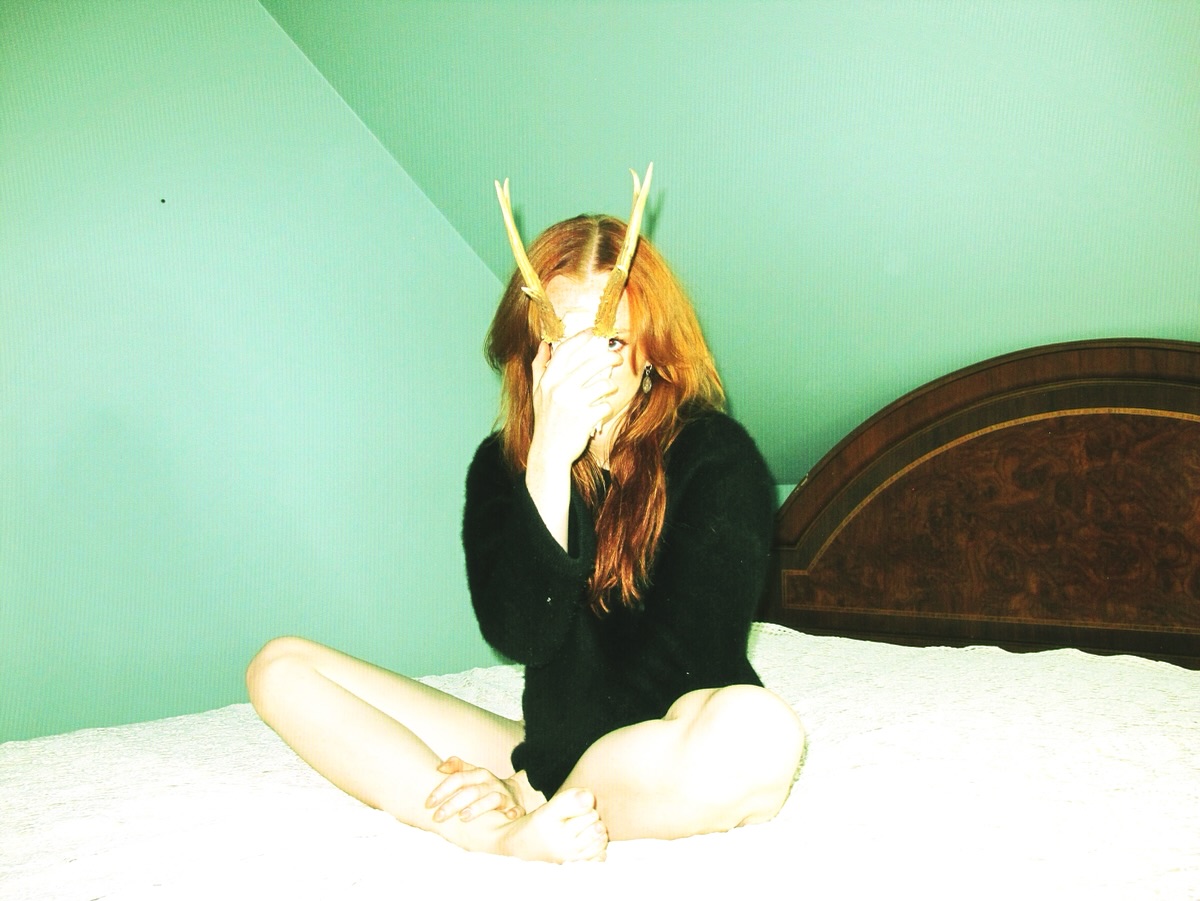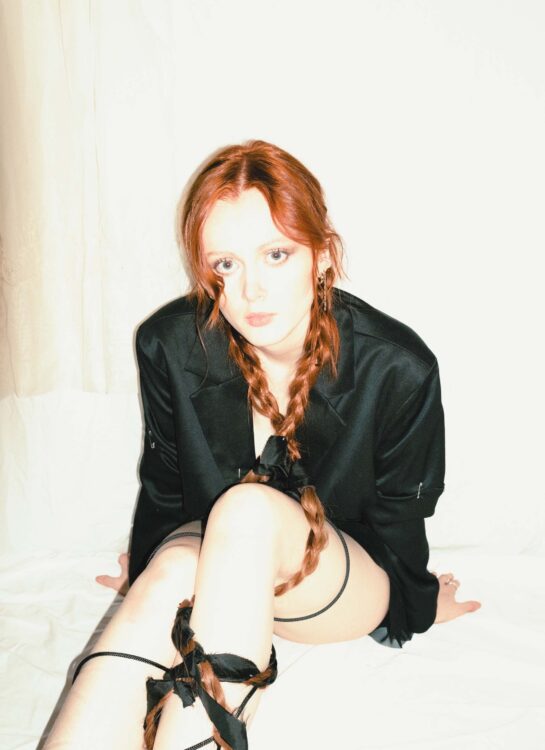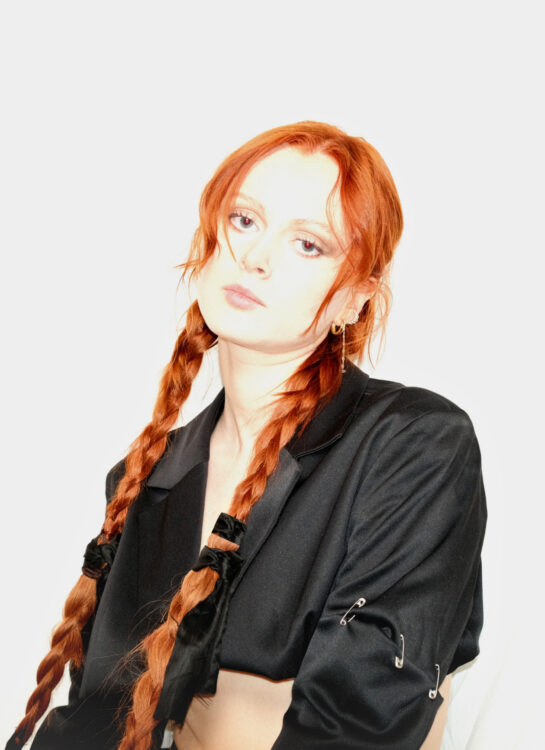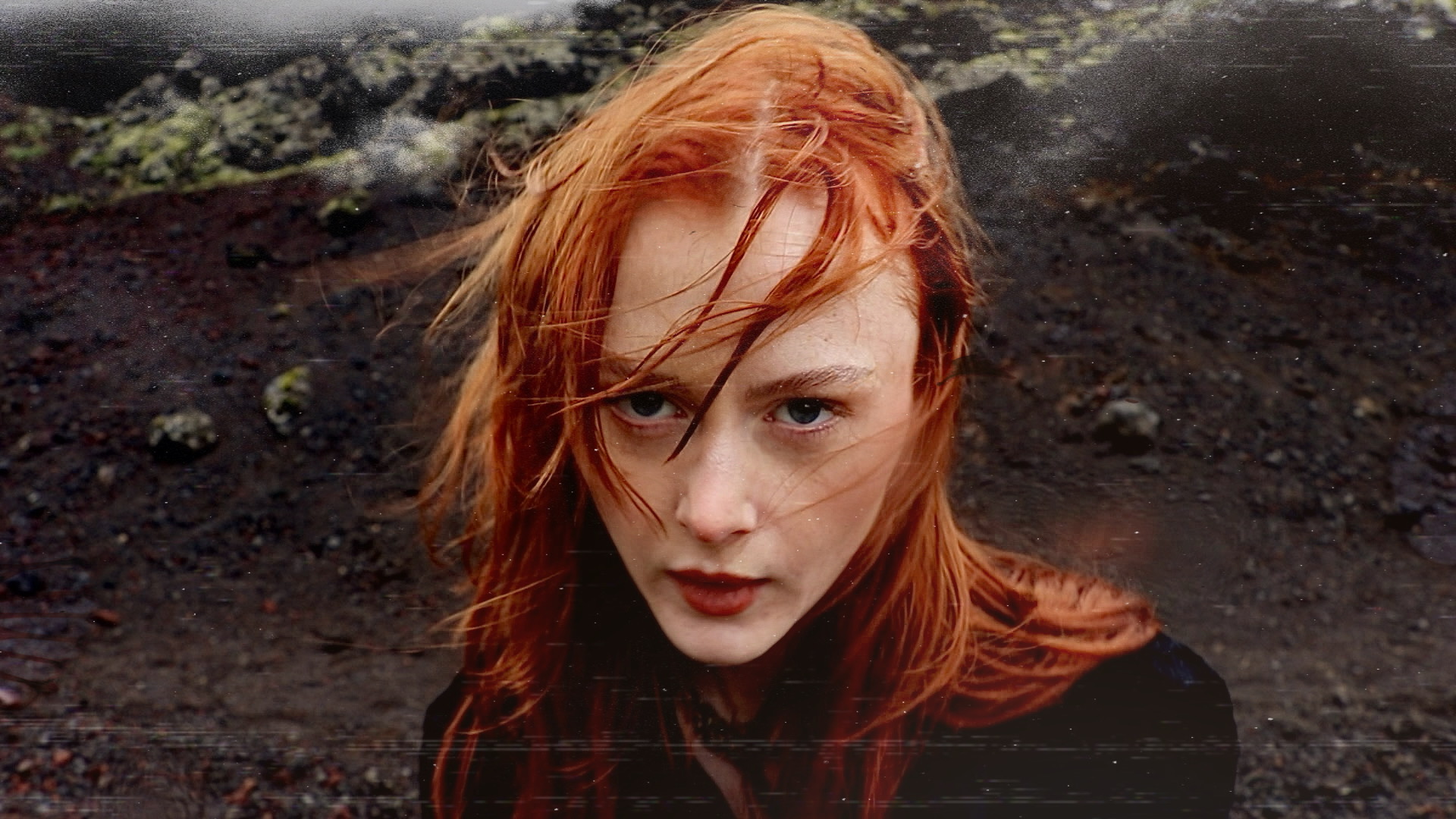- Words Notion Staff
With Iceland Airwaves on the horizon, polymathic artist Elín Hall reflects on the journey from frustration to freedom and what it means to be heard.
Somewhere between the volcanic quiet of Iceland’s landscapes and the restless hum of Reykjavík at night, you’ll find Elín Hall, an artist whose work feels both dreamlike and disarmingly raw. Her music lives in the tension between memory and myth, bending fantasy into something that feels startlingly true. In just a few years, she has become one of Iceland’s most vital cultural figures. She won Album of the Year at the Reykjavík Grapevine Awards with heyríst í mér? and Best Actress at the Chicago International Film Festival for When the Light Breaks. This November she will bring that dual force of music and film to Iceland Airwaves, one of the country’s most defining cultural stages.
Her latest chapter arrives in the form of ‘Wolf Boy’, a single that embraces darker shades of identity and perception. Written in English and shaped with Grammy-winning producer Martin Terefe, it carries the weight of myth and the intimacy of memory, positioning her for the international breakthrough that has long felt inevitable. “I was drawn to the idea of being seen as the villain,” she explains. “Not because I believed it entirely, but because that was the role I ended up in.” It is this willingness to lean into discomfort, to probe the fault lines between how we see ourselves and how others cast us, that makes her one of Iceland’s most compelling voices.
That same searching honesty now returns to Iceland Airwaves, the multi-venue Reykjavík gathering that has launched so many of the country’s brightest talents. For Elín, it’s not only a stage but a mirror, a place where she has tested her voice, reimagined her art, and found new ways to connect myth to memory. This year she comes back at a pivotal moment, with a sound that feels ready to travel far beyond her home country’s borders.
Ahead of her Iceland Airwaves performance, we caught up Elín Hall to talk her Icelandic roots, acting and the search for honesty in both music and film.

Your music has always felt like a blend of fantasy and reality, where dreamy soundscapes meet deeply human stories. When you write, are you escaping Iceland’s landscapes or trying to capture them?
For me, it’s less about escaping Iceland’s landscapes and more about channeling them. The environment here is so powerful. It’s raw, quiet and dramatic. The fantasy element in my music often comes from trying to translate that feeling. But the emotional core is always very real. I’m not trying to run from the world around me, I’m trying to capture what it feels like to live inside it.
Your album heyrist í mér? was a huge moment for you, earning critical acclaim and multiple awards. Looking back now, what part of that record still resonates most with who you are today and what part feels like you’ve already outgrown it?
I was reluctant to let go of the era that gave birth to the album, because it came from a frustration of feeling misunderstood both personally and creatively. But those feelings ended up unlocking a new sound for me. The album translates to “can you hear me?” and at the time that question carried so much weight and a real need to be heard. Today, the question feels different. It’s not “can you hear me?” but more so “if someone is listening, what would I say?”
You’re currently crafting a new album with international collaborators. How has working beyond Iceland’s borders challenged or expanded your creative process? Do you feel your sound is shifting to meet a global audience, or are you doubling down on your Icelandic roots?
I don’t think I really gave much thought to my Icelandic roots before. It wasn’t until I started performing for international audiences that my nationality even became part of the conversation. But I’ve never resisted it. If anything, I feel deeply inspired by the Icelandic artists who came before me and helped carve out space for musicians like me.
Iceland Airwaves has long been a launchpad for local artists to reach international ears. How has your relationship with the festival evolved, and what does it mean to you to return to the Airwaves stage during this pivotal moment in your career?
It’s safe to say I owe my career to Iceland Airwaves. Growing up, performing at the festival was my dream. I always looked forward to November as it took over Reykjavík with its music and energy. I’ve been incredibly fortunate to be part of the program for the past few years, and it’s meant everything to me.
Performing in Reykjavík, especially at Airwaves, feels intimate in a way that’s hard to replicate elsewhere. How does the energy of a hometown crowd shape your live performance compared to international stages?
There’s something really special about performing in Reykjavík, especially at Airwaves. The energy is so personal, almost like you’re playing for a room full of extended family. It creates a kind of closeness that’s hard to recreate anywhere else. When I play internationally, it’s a different kind of magic. People are discovering you for the first time, and that brings its own kind of excitement.


You’ve built a rare dual career as both a musician and an award-winning actress. Do those creative disciplines feed each other, or do you keep them separate? Is there an emotional thread that runs through both your music and your acting?
I see more similarities than differences between music and acting. At the core, both are about conveying emotion and telling stories that feel true. Having two creative outlets to explore that truth is a privilege. I genuinely believe my music makes me a more intuitive actor, and acting helps me bring deeper emotion and presence into my music. They feed each other in many ways. For me, as long as I believe in what I’m expressing, it doesn’t really matter whether it’s through music or acting. The method is secondary, the message is what matters most.
Your latest film When the Light Breaks premiered at Cannes and has already earned you Best Actress at the Chicago International Film Festival. Has this intense period of acting success changed your perspective on storytelling in music?
I’ve been incredibly fortunate to travel the world with my films and have meaningful conversations with people from all over the world. I truly believe that lovers of film are lovers of humanity. In a time of division and political unrest, it’s human stories that remind us of our shared experience. That truth doesn’t just influence my songwriting, it reassures me that creating and sharing stories is not only meaningful, but necessary.
Iceland Airwaves is known for unconventional spaces – performances spill out into churches, bookstores, tiny bars. Is there a particular kind of venue where your music feels most alive?
I got to play in a lava tunnel two years back at Airwaves. It was truly inspiring even for me. Normally I am too much of a homebody for the exotic outdoors of my country. But this felt like a different planet, a different world where nothing existed other than the love of music.
Much of your work seems to sit with quiet emotions – melancholy, longing, reflection. What draws you to that space? Do you find joy in sadness, or is it simply where your most honest writing lives?
I think those quieter emotions, melancholy, longing, reflection are just where I naturally go when I write. It’s not that I’m chasing sadness, but that’s often where the truth lives for me. There’s something really human about those in-between feelings, the ones that don’t always have a clear resolution.
I wouldn’t say I find joy in sadness, but I do find a kind of peace in expressing it. That space allows me to be the most honest. And I think people connect to that honesty, because even if the emotion is heavy, it’s real. It makes us feel less alone.

The Reykjavik music scene has always punched above its weight globally. What do you think it is about Iceland – its scale, its solitude, its sense of community – that fosters such a unique wave of artists time and again?
Growing up in Reykjavík, it’s hard not to be surrounded by creativity. Everyone here is making something and there’s a lot of encouragement to experiment without fear. You can find your own sound, your own voice, and people will listen.
You’re part of a generation of Icelandic artists who are increasingly fluid-blurring genre lines, moving between disciplines, and thinking globally. What do you hope your body of work will stand for when you look back in 10 years?
I hope my work stands for honesty above all else. Whether it’s through music, acting, or anything else I create, I want it to feel real. I hope when I look back in 10 years, I see a body of work that wasn’t afraid to evolve. Something that followed emotion instead of expectation. If what I make helps someone feel more understood or less alone, even just for a moment, that would mean everything to me.

